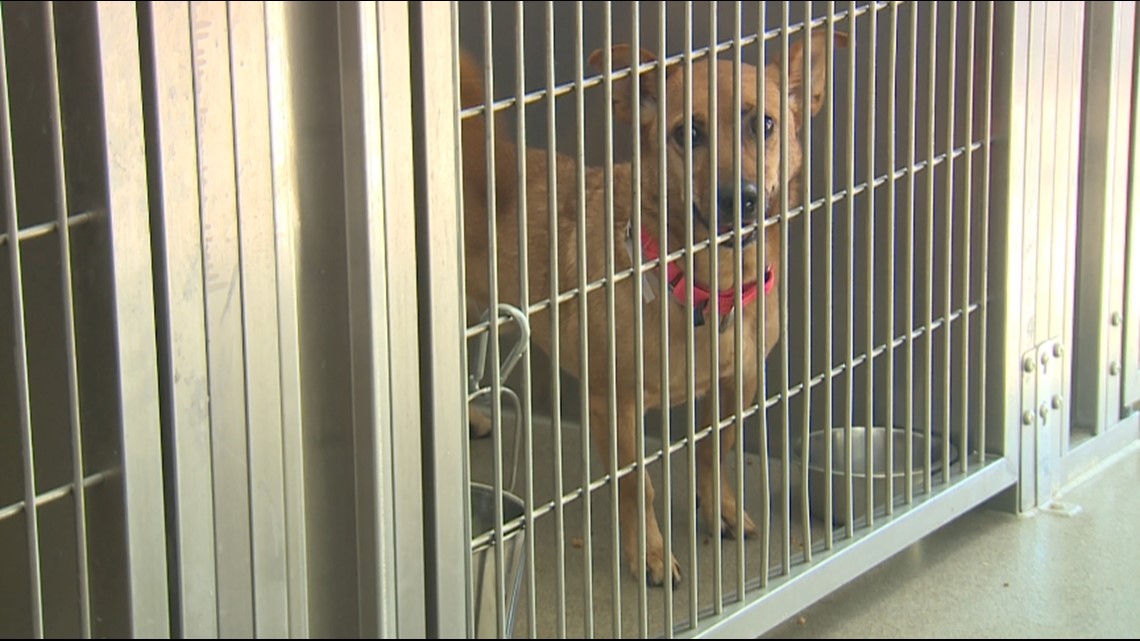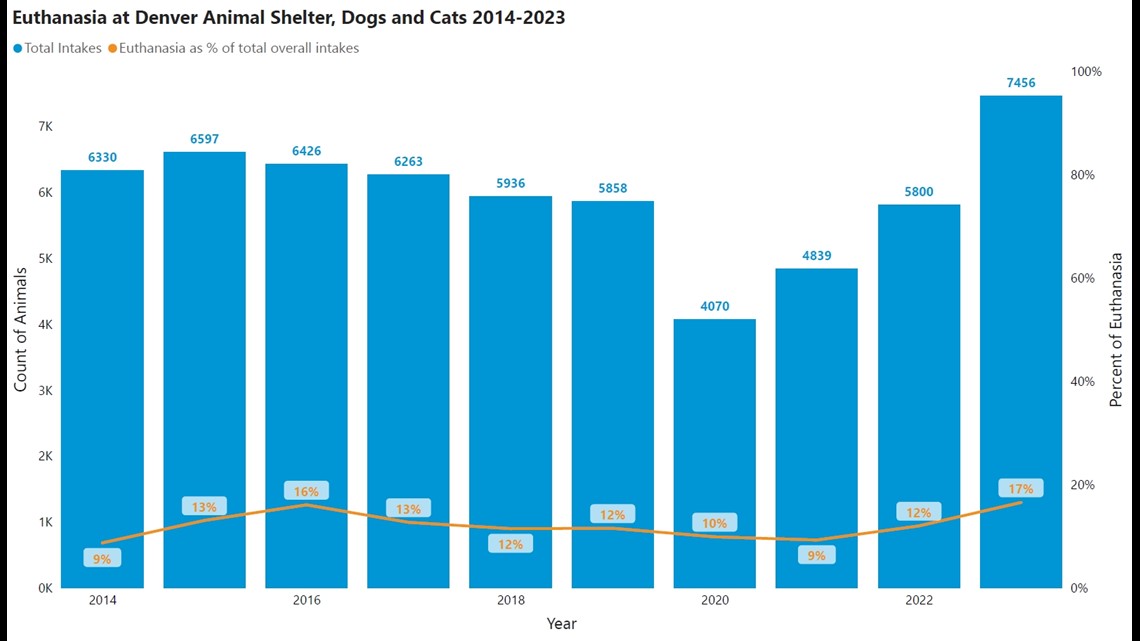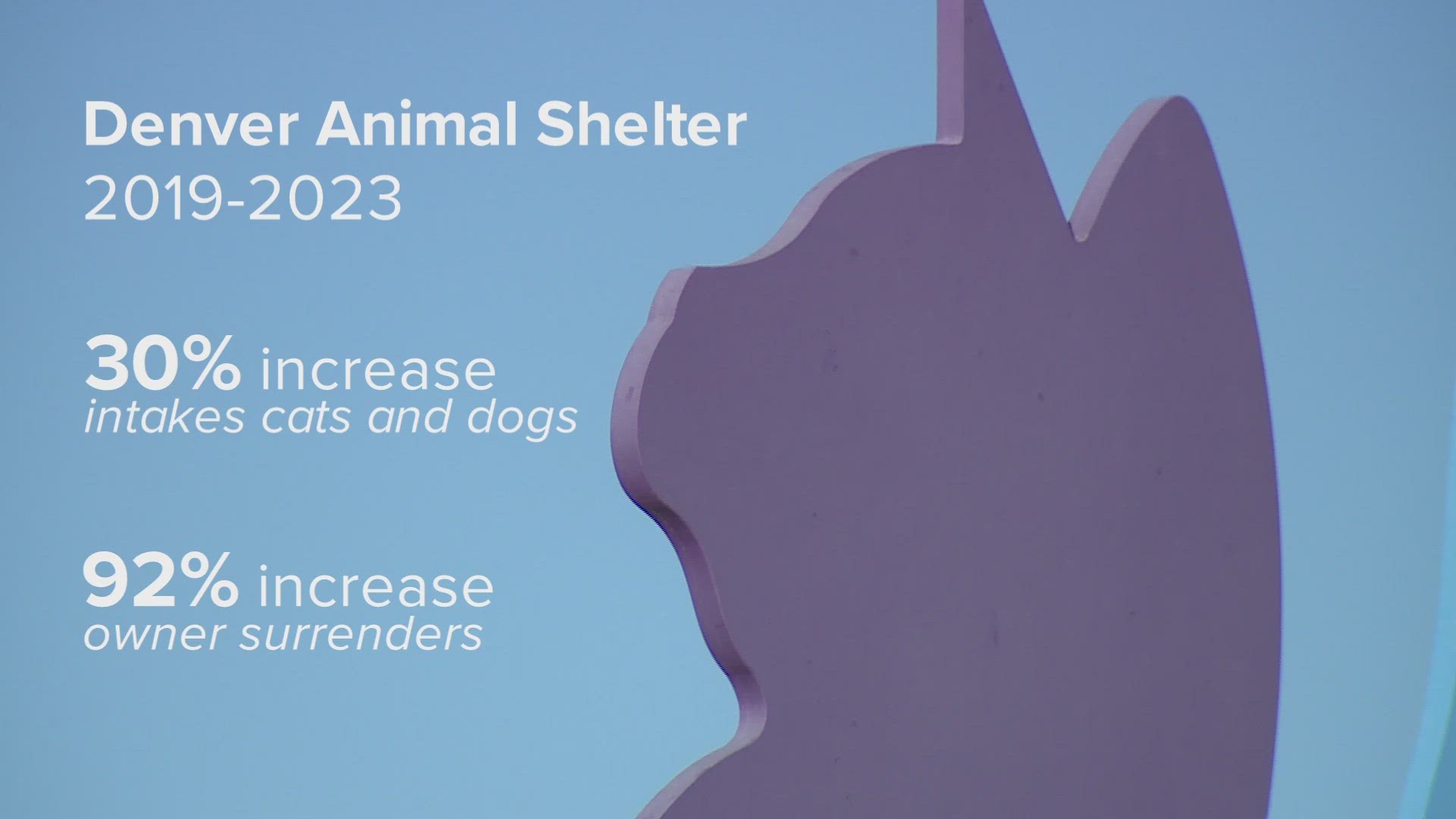DENVER — Euthanasia at the Denver Animal Shelter (DAS) is the highest it's been in ten years.
The shelter said it's a trend happening across the country, as the number of animals arriving to their doors, continues to increase.
That means kennels at DAS are getting crowded. They've had to double up because there's no space for the influx of animals coming in, according to Melanie Sobel, director of Denver Animal Protection.
"It's hard," said Sobel. "It's hard for the staff to see the animals pouring in every single day."
She said they saw a 30% increase in intakes of cats and dogs at the shelter, from 2019 to 2023. There was also a 92% increase in owner surrenders.
"People are losing their homes. They're having to move into apartments," said Sobel. "They can't afford their animal anymore."


Sobel said it's a national problem, mainly inflation, driving up the cost of living, pet supplies and veterinary costs.
"Our adoptions increased, everything else increased," she said. "Our return to owners increased, so unfortunately our euthanasia is going to increase simply by the increase in animals, number of animals that come in."
In 2022, 700 cats and dogs were euthanized. Last year, that number jumped to 1,238.


RELATED: America's animal shelters are overcrowded with pets from families facing economic and housing woes
"It was very saddening especially when you feel like you can help," said Sabrina Lew Young.
Lew Young was dismissed as a volunteer at the shelter, along with her 9-year-old daughter in October after starting there in March.
"I want people to help and I want volunteers to do the training and go because the dogs need it but I believe that it can be much better," she said.
Lew Young said the shelter told her she violated their confidentiality agreement by posting online about a dog that was euthanized, resulting in her dismissal.
"Another volunteer and me, we wanted to adopt her just to give her a safe haven, the last days of her life, but this was kind of like shut down ideas," she said.
Lew Young said volunteers also found a different rescue willing to take in a few dogs on the euthanasia list, but the transfers were denied by DAS. She said they also found dog trainers willing to donate their time, but those ideas were also denied.
"We had information that this dog was not safe, which is the reason why this dog was euthanized and the volunteers didn't have access to that information," said Sobel.
Sobel said they only transfer to partner organizations that are Pet Animal Care and Facilities Act (PACFA) certified, and have been through their vetting process. Similarly, she said trainers also have to be vetted.
"Our responsibility as an open admission shelter and government animal control is also public safety," said Sobel. "If we determine an animal's not safe either to a person or a to another animal, we can't in good conscience place that animal out into the community."
She said animals are only euthanized if they're suffering, and if their emergency veterinarians cannot do anything medically, to help.
"We're open seven days a week, so we take any animal that comes through our doors. We do not refuse any animal," said Sobel. "Other shelters, called limited admission, have the luxury to pick and choose which animals they take in."
She said they do everything they can to get a dog or cat placed into a home. That includes trying to keep them healthy mentally and physically with walks, hikes, and playtime.
Sobel said the shelter environment can be stressful for animals, so some begin to deteriorate after a while, which can make them a safety risk. That's when they tap into their fostering network, that can take the animals out of the shelter for a period of time.
Sobel said they're also focusing on proactive things that will prevent animals from coming to the shelter in the first place. Those things include, free spay/neuter procedures, and free pet food.
She said volunteers are their lifeline, and they can always use more people who are willing to donate their time. If you'd like to donate or volunteer, check out their website.
SUGGESTED VIDEOS: Latest from 9NEWS

